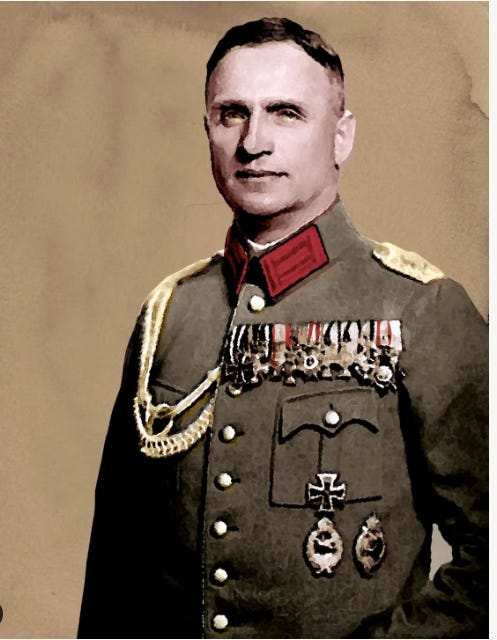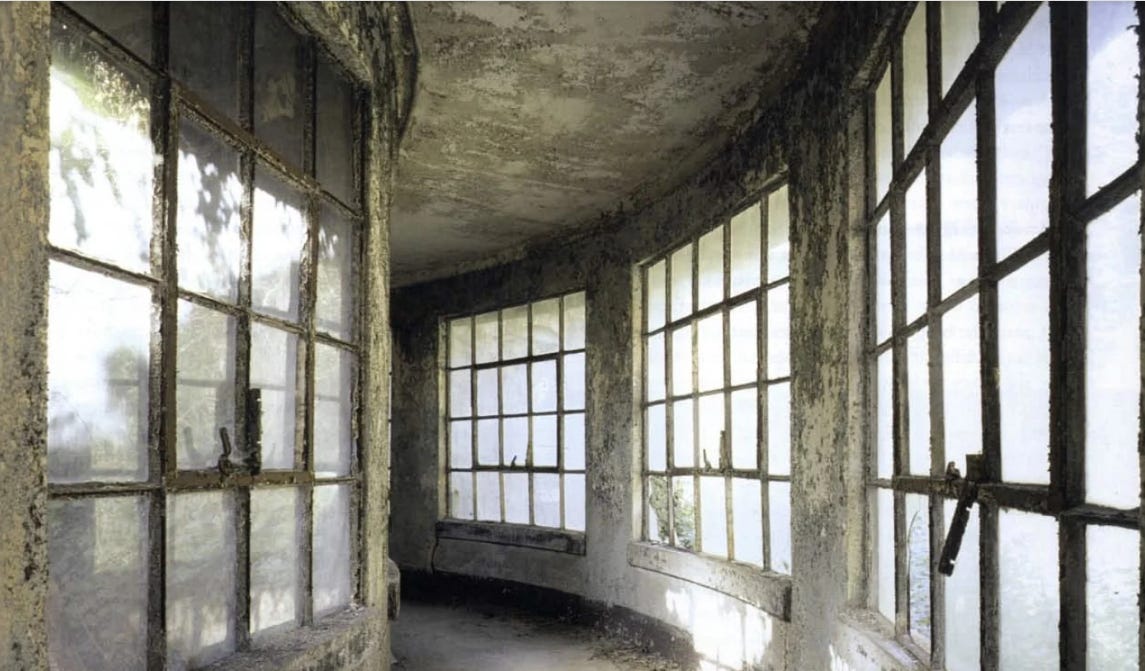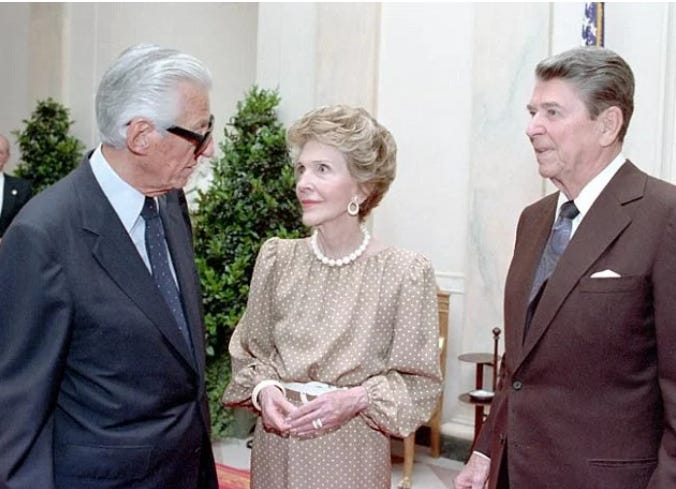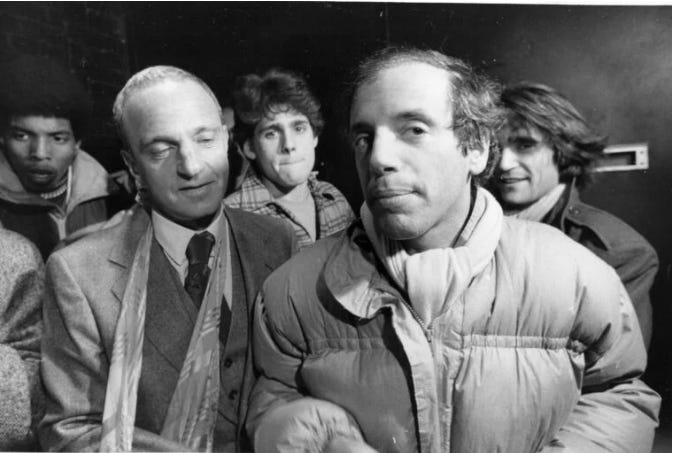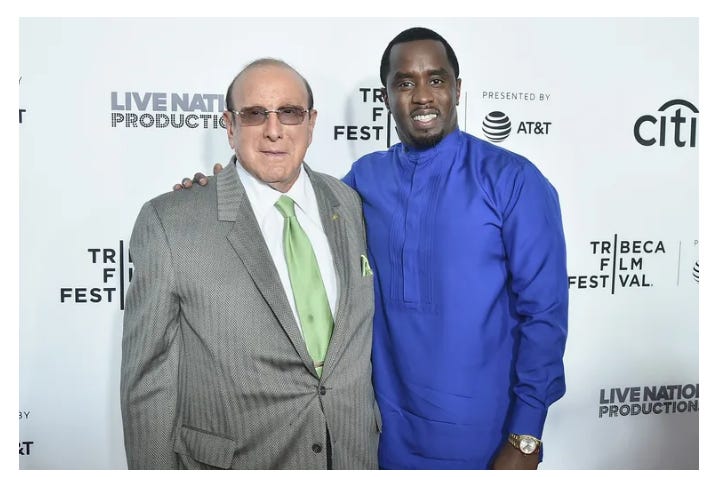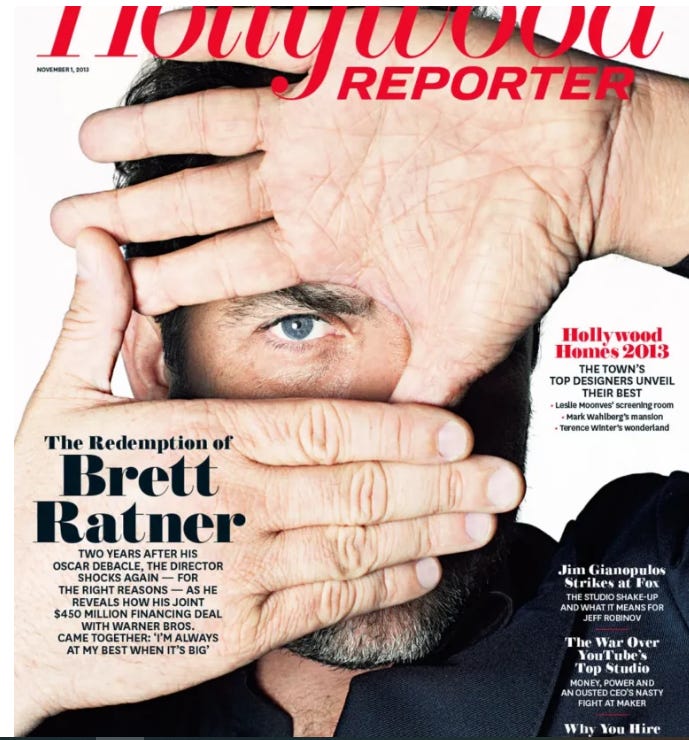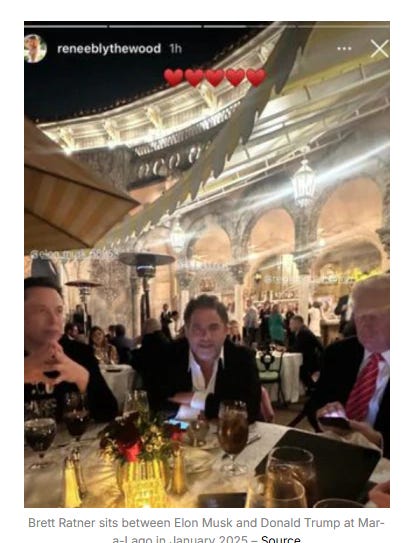Jewish Values Out in the Open -- Oppen-Monster-Heimer or Zyklon Blinken, et al, we Don't Need no Stinking Badges to Off Them
"Yeah, if I had been in Nazi Germany, had a Luger or grenade, and if Hitler came by for a pint, I woulda just offed him." It is the time of MONSTERS!
Summary executions.
No No No, these dirty rats, these dirty Hitlerian and InBred UnUnited Queendomers, these EuroTrashLandians, no no no, they’d never do that then or now.
Badges? Stars of Fucking Schizoid Davids:
And now? Worse than Hitler, man, Rapist in Chief Trump and his Fucking Jews and South Africans!
“Throw one punch to prevent a hundred blows”
Jews are Nazi’s: What was the safest place for a Jew in Hitler’s Germany? A cellar or an attic? A forest? At home with a well-connected Aryan spouse? The answer was in Hitler’s military—in the Wehrmacht, the Kriegsmarine, or the Luftwaffe
[Helmuth Wilberg, a German officer of Jewish ancestry, was the last general of the Luftwaffe during the Second World War]
Summary execution refers to the putting to death of a person accused of a crime without the benefit of a free and fair trial. This practice often occurs in situations of conflict or under authoritarian regimes, where legal processes are bypassed. In essence, it is a form of extrajudicial killing, where the accused is executed immediately after being accused, without any legal proceedings.
Anecdotal testimony, however, suggests that most of the Jewish men who served in Hitler’s military lost their faith during the war, if they’d ever had it. As one soldier put it, after his face had been sprayed with the brains of a comrade, he decided God did not exist.
Another force that encouraged Jewish men to serve was the culture in which they had been raised. In 19th- and early-20th-century Germany, obedience ranked high on the list of virtues. Reverence for the head of the family, the rabbi, the teacher, the kaiser had been instilled in them since boyhood. Individuality was neither encouraged nor valued. Often, it was not tolerated. One Mischlinge naval officer was educated at a strict Prussian school and punished by his father on the rare occasions when he didn’t excel there.
Israel is poised to carry out the largest campaign of ethnic cleansing since the end of World War II. Since March 2, it has blocked all food and humanitarian aid into Gaza and cut off electricity, so that the last water desalination plant no longer functions. The Israeli military has seized half of the territory — Gaza is 25 miles long and four to five miles wide — and placed two-thirds of Gaza under displacement orders, rendered “no-go zones,” including the border town of Rafah, which is encircled by Israeli troops.
Be a good neighbor and kill a Jew, then?
Fucking Jews! Yes, these are Jews in the IOF/IDF, in that fucking “Israel.”
UN agency says 4,700 new amputees during conflict
Prosthetics and other aid hard to get into blockaded Gaza
Doctors warn of further problems from lack of adequate care
Read, son, read:
Beyond Hope — Removing a major stumbling block to acting on behalf of the Earth
By Derrick Jensen
THE MOST COMMON WORDS I hear spoken by any environmentalists anywhere are, We’re fucked. Most of these environmentalists are fighting desperately, using whatever tools they have — or rather whatever legal tools they have, which means whatever tools those in power grant them the right to use, which means whatever tools will be ultimately ineffective — to try to protect some piece of ground, to try to stop the manufacture or release of poisons, to try to stop civilized humans from tormenting some group of plants or animals. Sometimes they’re reduced to trying to protect just one tree.
Here’s how John Osborn, an extraordinary activist and friend, sums up his reasons for doing the work: “As things become increasingly chaotic, I want to make sure some doors remain open. If grizzly bears are still alive in twenty, thirty, and forty years, they may still be alive in fifty. If they’re gone in twenty, they’ll be gone forever.”
But no matter what environmentalists do, our best efforts are insufficient. We’re losing badly, on every front. Those in power are hell-bent on destroying the planet, and most people don’t care.
Frankly, I don’t have much hope. But I think that’s a good thing. Hope is what keeps us chained to the system, the conglomerate of people and ideas and ideals that is causing the destruction of the Earth.
To start, there is the false hope that suddenly somehow the system may inexplicably change. Or technology will save us. Or the Great Mother. Or beings from Alpha Centauri. Or Jesus Christ. Or Santa Claus. All of these false hopes lead to inaction, or at least to ineffectiveness. One reason my mother stayed with my abusive father was that there were no battered women’s shelters in the ’50s and ’60s, but another was her false hope that he would change. False hopes bind us to unlivable situations, and blind us to real possibilities.
Does anyone really believe that Weyerhaeuser is going to stop deforesting because we ask nicely? Does anyone really believe that Monsanto will stop Monsantoing because we ask nicely? If only we get a Democrat in the White House, things will be okay. If only we pass this or that piece of legislation, things will be okay. If only we defeat this or that piece of legislation, things will be okay. Nonsense. Things will not be okay. They are already not okay, and they’re getting worse. Rapidly.
But it isn’t only false hopes that keep those who go along enchained. It is hope itself. Hope, we are told, is our beacon in the dark. It is our light at the end of a long, dark tunnel. It is the beam of light that makes its way into our prison cells. It is our reason for persevering, our protection against despair (which must be avoided at all costs). How can we continue if we do not have hope?
Most of these environmentalists are fighting desperately, using whatever tools they have — or rather whatever legal tools they have, which means whatever tools those in power grant them the right to use.
We’ve all been taught that hope in some future condition — like hope in some future heaven — is and must be our refuge in current sorrow. I’m sure you remember the story of Pandora. She was given a tightly sealed box and was told never to open it. But, being curious, she did, and out flew plagues, sorrow, and mischief, probably not in that order. Too late she clamped down the lid. Only one thing remained in the box: hope. Hope, the story goes, was the only good the casket held among many evils, and it remains to this day mankind’s sole comfort in misfortune. No mention here of action being a comfort in misfortune, or of actually doing something to alleviate or eliminate one’s misfortune.
The more I understand hope, the more I realize that all along it deserved to be in the box with the plagues, sorrow, and mischief; that it serves the needs of those in power as surely as belief in a distant heaven; that hope is really nothing more than a secular way of keeping us in line.
Hope is, in fact, a curse, a bane. I say this not only because of the lovely Buddhist saying “Hope and fear chase each other’s tails,” not only because hope leads us away from the present, away from who and where we are right now and toward some imaginary future state. I say this because of what hope is.
More or less all of us yammer on more or less endlessly about hope. You wouldn’t believe — or maybe you would — how many magazine editors have asked me to write about the apocalypse, then enjoined me to leave readers with a sense of hope. But what, precisely, is hope? At a talk I gave last spring, someone asked me to define it. I turned the question back on the audience, and here’s the definition we all came up with: hope is a longing for a future condition over which you have no agency; it means you are essentially powerless.
I’m not, for example, going to say I hope I eat something tomorrow. I just will. I don’t hope I take another breath right now, nor that I finish writing this sentence. I just do them. On the other hand, I do hope that the next time I get on a plane, it doesn’t crash. To hope for some result means you have given up any agency concerning it. Many people say they hope the dominant culture stops destroying the world. By saying that, they’ve assumed that the destruction will continue, at least in the short term, and they’ve stepped away from their own ability to participate in stopping it.
I do not hope coho salmon survive. I will do whatever it takes to make sure the dominant culture doesn’t drive them extinct. If coho want to leave us because they don’t like how they’re being treated — and who could blame them? — I will say goodbye, and I will miss them, but if they do not want to leave, I will not allow civilization to kill them off.
When we realize the degree of agency we actually do have, we no longer have to “hope” at all. We simply do the work. We make sure salmon survive. We make sure prairie dogs survive. We make sure grizzlies survive. We do whatever it takes.
When we stop hoping for external assistance, when we stop hoping that the awful situation we’re in will somehow resolve itself, when we stop hoping the situation will somehow not get worse, then we are finally free — truly free — to honestly start working to resolve it. I would say that when hope dies, action begins.
A doorway peers into rows of opened doors, creating the effect of a tunnel.
Photograph by Stephen Wilkes.
PEOPLE SOMETIMES ASK ME, “If things are so bad, why don’t you just kill yourself?” The answer is that life is really, really good. I am a complex enough being that I can hold in my heart the understanding that we are really, really fucked, and at the same time that life is really, really good. I am full of rage, sorrow, joy, love, hate, despair, happiness, satisfaction, dissatisfaction, and a thousand other feelings. We are really fucked. Life is still really good.
Many people are afraid to feel despair. They fear that if they allow themselves to perceive how desperate our situation really is, they must then be perpetually miserable. They forget that it is possible to feel many things at once. They also forget that despair is an entirely appropriate response to a desperate situation. Many people probably also fear that if they allow themselves to perceive how desperate things are, they may be forced to do something about it.
Another question people sometimes ask me is, “If things are so bad, why don’t you just party?” Well, the first answer is that I don’t really like to party. The second is that I’m already having a great deal of fun. I love my life. I love life. This is true for most activists I know. We are doing what we love, fighting for what (and whom) we love.
I have no patience for those who use our desperate situation as an excuse for inaction. I’ve learned that if you deprive most of these people of that particular excuse they just find another, then another, then another. The use of this excuse to justify inaction — the use of any excuse to justify inaction — reveals nothing more nor less than an incapacity to love.
At one of my recent talks someone stood up during the Q and A and announced that the only reason people ever become activists is to feel better about themselves. Effectiveness really doesn’t matter, he said, and it’s egotistical to think it does.
I told him I disagreed.
Doesn’t activism make you feel good? he asked.
Of course, I said, but that’s not why I do it. If I only want to feel good, I can just masturbate. But I want to accomplish something in the real world.
Why?
Because I’m in love. With salmon, with trees outside my window, with baby lampreys living in sandy streambottoms, with slender salamanders crawling through the duff. And if you love, you act to defend your beloved. Of course results matter to you, but they don’t determine whether or not you make the effort. You don’t simply hope your beloved survives and thrives. You do what it takes. If my love doesn’t cause me to protect those I love, it’s not love.
Hope is a longing for a future condition over which you have no agency; it means you are essentially powerless.
A WONDERFUL THING happens when you give up on hope, which is that you realize you never needed it in the first place. You realize that giving up on hope didn’t kill you. It didn’t even make you less effective. In fact it made you more effective, because you ceased relying on someone or something else to solve your problems — you ceased hoping your problems would somehow get solved through the magical assistance of God, the Great Mother, the Sierra Club, valiant tree-sitters, brave salmon, or even the Earth itself — and you just began doing whatever it takes to solve those problems yourself.
When you give up on hope, something even better happens than it not killing you, which is that in some sense it does kill you. You die. And there’s a wonderful thing about being dead, which is that they — those in power — cannot really touch you anymore. Not through promises, not through threats, not through violence itself. Once you’re dead in this way, you can still sing, you can still dance, you can still make love, you can still fight like hell — you can still live because you are still alive, more alive in fact than ever before. You come to realize that when hope died, the you who died with the hope was not you, but was the you who depended on those who exploit you, the you who believed that those who exploit you will somehow stop on their own, the you who believed in the mythologies propagated by those who exploit you in order to facilitate that exploitation. The socially constructed you died. The civilized you died. The manufactured, fabricated, stamped, molded you died. The victim died.
And who is left when that you dies? You are left. Animal you. Naked you. Vulnerable (and invulnerable) you. Mortal you. Survivor you. The you who thinks not what the culture taught you to think but what you think. The you who feels not what the culture taught you to feel but what you feel. The you who is not who the culture taught you to be but who you are. The you who can say yes, the you who can say no. The you who is a part of the land where you live. The you who will fight (or not) to defend your family. The you who will fight (or not) to defend those you love. The you who will fight (or not) to defend the land upon which your life and the lives of those you love depends. The you whose morality is not based on what you have been taught by the culture that is killing the planet, killing you, but on your own animal feelings of love and connection to your family, your friends, your landbase — not to your family as self-identified civilized beings but as animals who require a landbase, animals who are being killed by chemicals, animals who have been formed and deformed to fit the needs of the culture.
When you give up on hope — when you are dead in this way, and by so being are really alive — you make yourself no longer vulnerable to the cooption of rationality and fear that Nazis inflicted on Jews and others, that abusers like my father inflict on their victims, that the dominant culture inflicts on all of us. Or is it rather the case that these exploiters frame physical, social, and emotional circumstances such that victims perceive themselves as having no choice but to inflict this cooption on themselves?
But when you give up on hope, this exploiter/victim relationship is broken. You become like the Jews who participated in the Warsaw Ghetto Uprising.
When you give up on hope, you turn away from fear.
And when you quit relying on hope, and instead begin to protect the people, things, and places you love, you become very dangerous indeed to those in power.
In case you’re wondering, that’s a very good thing.
+—+
Hoping there are good Jews? Hope? Fuck that shit.
Schizoid Jews of any color — That fucking skull cap need a good chainsaw.
I have repeatedly said that the cutting (material) edge of the anti-Zionist movement is Palestine Action. But, of course, the PSC doesn’t want to hear, as it has been seeking to sabotage the activities of Palestine Action for many months. David Miller
The British-based Palestine Solidarity Campaign has taken it upon itself to try and ban me – and other anti-Zionists – from speaking at public meetings up and down the country. In aid of the absurd campaign of censorship, it has tried to pressure and threaten its local branches.
Before we get into details, one thing to bear in mind is that this type of response is due, in part, to the fact that the Left in the UK had been played by Zionists in the anti-racist movement for decades. Genocidal Zionists associated with the Revisionist Zionist movement were involved in the creation of the ‘anti-fascist’ movement in this country, as I have revealed in earlier reporting.
This particular group then (in 1948) affiliated en bloc with Irgun, the group responsible for the King David Hotel bombing and which was involved in 1947 and 1948 in terror attacks against British interests in Palestine and indeed in the UK itself. Since then, the British anti-racist movement has faced the difficulty of accommodating Zionists in order to create a ‘united front’. This has been true since the 1970s in Rock Against Racism and the Anti-Nazi League, and it has remained the case ever since in groups like Unite Against Fascism and today’s Stand Up To Racism.
The problem with allowing Zionists to be involved in leadership positions is that it always comes with a price. That price includes avoiding or soft-pedalling the fact that Zionism is a form of racism and adopting a strategy of opposing ‘fascism’ when the main form of racism in British Society is state and institutional racism against Black people, the Irish, and latterly, especially, Muslims. Jews are not the victims of either state or institutional racism in the UK today. It is a truly extraordinary fact that the Anglo-Left continues to feel so burdened by appeasing the sensibilities of the genocidaires of the Zionist movement.
Editorial Comment:
The author remarks that there is a growing nostalgia in China for Chairman Mao. Not only are we able to see this in the face of Trump’s economic war waged against the world, but in how the people of China have expressed sentiments regarding China’s neutrality in the face of genocide. What would Mao have done to stop it? Would China be sustaining diplomatic relations and trade with Israel? Would China be promoting a colonial agenda through continually pushing for a “two state solution” even in the midst of the most aggressive and brutal extermination campaign witnessed in our time? I encourage readers to visit the linked articles at the end for greater depth and insight on the significant difference between Mao’s China and Xi’s.
As Chinese people watched the tariff war spiral out of control, there is one person they suddenly feel nostalgic for—Chairman Mao. There’s a consensus in China that, among all leaders, Mao knew best how to handle the United States.
In the collective memory of the Chinese people, Mao is credited with pushing back U.S. forces during the Korean war and securing a safe external environment for China to develop its economy, pivotal for the newly-established socialist country. (source)
“We will fight as long as they want to fight, and fight on until complete victory is achieved”
This statement was made by Mao Zedong in February 1953, when no sign of armistice was on the horizon.
The Chinese Embassy in the U.S. echoed this sentiment in a tweet in early March: “If the U.S. truly wants to solve the fentanyl issue, the right thing to do is to consult with China by treating each other as equals. If war is what the U.S. wants—be it a tariff war, a trade war, or any other type of war—we’re ready to fight till the end.”
Beginning in late 2023, a series of startling and unsettling allegations against Sean Combs –– a record executive and rapper known over the years by stage names like “Puff Daddy,” “P. Diddy” and presently “Diddy” –– have emerged. As the allegations and lawsuits facing Combs have snowballed, so, too, has public interest in the case. The sheer amount of accusations suggests that Combs, in addition to being very sexually and physically violent, filmed many assault encounters and orgies that occurred at his now notorious “Freak Off” parties, sometimes with hidden or security cameras. He also now stands accused of “operating an empire of sexual crimes,” with federal agents having alleged that several of Combs’ victims were of “barely legal” or “barely illegal” age at the time of their abuse. Combs’ apparent documentation of these events strongly suggests that he was interested in keeping these records for more than his perverse enjoyment, as either a form of a protection or as a means to control those who appeared in these films, i.e. blackmail.
As a result, speculation has grown about who is allegedly on the “list” of people filmed by Combs in this way, prompting comparisons to the alleged “list” of sex trafficker, pedophile and intelligence asset Jeffrey Epstein. The comparisons between Epstein and Combs have only grown, with even the homeland security agents who raided Combs’ Miami home suggesting that Combs was “as bad as Epstein.”
However, as has long been a theme of Unlimited Hangout’s Epstein-related reporting, including the book One Nation Under Blackmail, the Jeffrey Epstein case has been poorly explored by the federal government, mainstream media outlets, and even many independent media outlets. A deeper examination of the Epstein case makes it clear that Epstein was not the sole mastermind or sole beneficiary of the sex trafficking and blackmail operation in which he engaged. Instead, Epstein served as an operator for a larger, monied network of oligarchs with extensive organized crime connections in addition to significant affiliations with intelligence agencies. He was also more than a sex trafficker for this group, having aided this network extensively in arms trafficking, money laundering and other crimes (many financial) that fall outside of the focus on his sex-related offenses.
It should come as no surprise upon closer examination of Sean Combs that, like Epstein, he was operating on behalf of a larger network that he did not ultimately control. Instead, it arguably controlled him. As this three-part series from Unlimited Hangout will endeavor to show, Combs was acting on behalf of an oligarch network that directly overlaps with that of Epstein. However, Combs used to influence a different industry and a different community for the benefit of these intelligence and organized crime-connected oligarchs.
Jews! Wasserman and MCA were also the forces chiefly responsible for the political career of former president Ronald Reagan. Reagan, previously an actor before becoming a politician, had been represented by MCA since 1940. Soon after, he became Wasserman’s first “million dollar client.” Wasserman later engineered Reagan’s campaign to lead the Screen Actors Guild, where Reagan made significant policy changes designed to give MCA an edge over other entertainment companies. Wasserman and other top MCA executives, such as Taft Schreiber and Jules Stein, played an intimate role in Reagan’s successful gubernatorial bid, as well as financing his later campaign for president of the United States. When Reagan was president, his Attorney General Edwin Meese notably quashed what had been an ongoing investigation into MCA’s organized crime ties. Meese later resigned following his involvement in the Bronx-based Wedtech scandal (see end note vi).
Jews: Studio 54 co-owner Steve Rubell, right, and his attorney Roy Cohn, left, talk to reporters outside US District Court in Manhattan, Friday, Nov. 2, 1979, after Rubell and his partner, Ian Schrager, pleaded guilty to tax evasion charges
Jews: Clive Davis’ storied career in the music industry began via his earlier career at Rosenman & Colin. While working at the firm (which –– as previously noted –– counted CBS as a client), Davis was hired to become assistant counsel of the CBS subsidiary, Columbia Records. He became the label’s general counsel a year later. Davis had been hired by Harvey Schein, a former colleague of Davis’ at Rosenman & Colin.
Jews: Beginning in 2017, Russell Simmons was hit with a slew of rape and sexual harassment lawsuits and accusations. One of Simmons’ earliest accusers, model Keri Claussen Khalighi, alleged that Simmons raped her in full view of the director Brett Ratner in 1991. Before the 2017 allegations, police had previously probed Simmons and Ratner for claims of jointly engaging in sexual battery back in 2001. Over a dozen women have since accused Simmons of sexual misconduct or crimes, while Ratner himself has been separately accused of similar crimes, including rape, by at least 10 women. Following the barrage of accusations, Simmons has laid low in Bali, Indonesia, embracing life as a “stateless” US citizen in a bid to evade the court’s jurisdiction. As will be explained in greater detail shortly, Ratner fled to Israel but is now planning a comeback, currying favor with the Trump family to that effect.
Ratner is a long-time close associate of Simmons, with some reports calling Ratner a “protégé” of Simmons. Simmons is credited with helping start Ratner’s career, as the two met while Ratner was still in film school (NYU’s Tisch School) and Ratner began filming music videos for Simmons-managed artists like Public Enemy soon after their meeting. Ratner also filmed a music video for Combs’ longtime associate Heavy D, who had first gotten Combs his internship at Uptown, in 1994. Getty images alone hosts hundreds of photographs of Ratner and Simmons partying together over the years.
Jews: Malnik’s own “protégé,” his adopted son Brett Ratner, claims to have also fostered a close relationship early on with Meyer Lansky himself. In a 2011 interview, Ratner stated the following:
“I grew up on Miami Beach. I lived on Collins Avenue at the Carriage House on 54th Street. And two doors down was the Imperial House where every day after school I would ride my bike and I would walk down the street with an old man who would walk his dog. We would walk together and everyone at the store would kiss my ass when I was with him. He would take me to this restaurant called the Villa Capri and everybody was always treating me so nice. I didn’t realize it until I was in line at the supermarket with my mom and I opened up Rolling Stone and I saw his picture on the back. It was Meyer Lansky’s obituary. Everybody thought it was weird because he was 80 and I was 12. He was the biggest gangster in the world and he was like my best friend as a kid.”
Jews:
Read it: One Label Under Blackmail: The Early Intersections of Diddy and the Epstein Network
In Part I of this series on the overlap between the worlds of Sean “Diddy” Combs and Jeffrey Epstein, we examine Combs’ early years, his mentors and the industry figures who ensured their, as well as Combs’ own, commercial success. Ties to organized crime and intelligence are readily apparent and point toward a truly sinister reason behind this network’s patronage of Combs and his close associates, like Andre Harrell and Russell Simmons.by C.Z. Means and by Whitney Webb/ April 7, 2025
Two hours in, after the nauseating Norman is barely questioned by the nauseating Halper: Whitney Webb has been a professional writer, researcher and journalist since 2016. She has written for several websites and, from 2017 to 2020, was a staff writer and senior investigative reporter for Mint Press News. She currently writes for Unlimited Hangout. She is the author of the book One Nation Under Blackmail. Recently her work was referenced by Ian Carroll on the Joe Rogan Podcast.
Better yet: In this episode, former UN human rights specialist on international law Craig Mokhiber reflects on how Israel's genocidal military campaign has produced an unprecedented crisis for the international order, and how it might represent an opportunity make it more equitable. He also discusses the role, achievements, and failing of the United Nations and the policies that led him to leave the organisation.
Long Form consists of a series of lengthy discussions and conversations with leading thinkers, scholars, and activists that explores the most pressing issues of our day, sheds light on their context and dynamics, and in so doing seeks to explore the broader theme of challenges to the global order and how these might affect it.
Jews:




